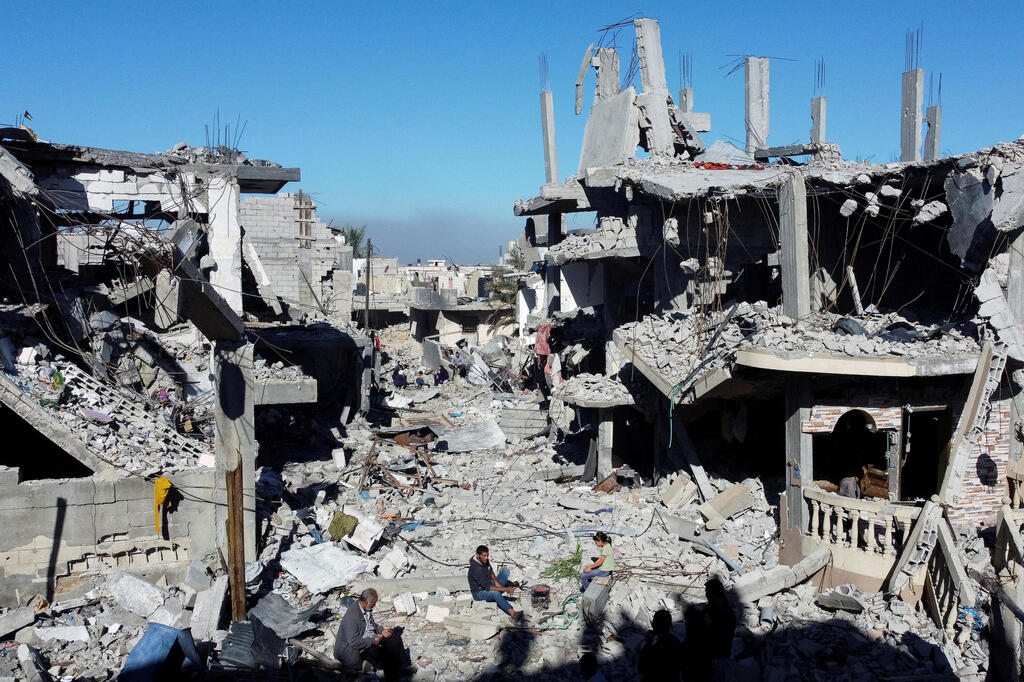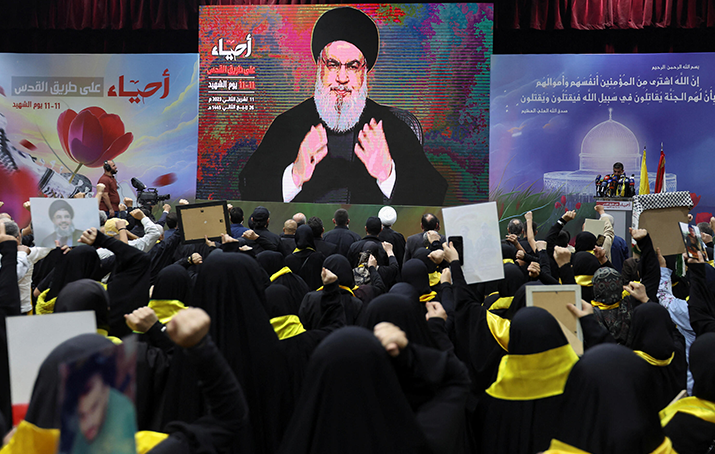Hamas was hoping to forego discussing the 15 women and two children that they are still holding, and cut a deal about the sick and the elderly on both sides, except this is no apples-to-apples comparison. While Israel's sick and elderly are long-time kibbutz stalwarts and founders, theirs are murderers sentenced to life imprisonment. While the Israeli hostages are medically neglected in captivity, the Palestinian prisoners receive rock-star treatment in Israeli prisons.
Read more:
It's possible Hamas' choice to stop dealing and resume the conflict stems from the pressure long-time Palestinian prisoners are exerting on Hamas itself, but the Israeli side had no problems picking up right where they left off, exemplifying their unwavering determination and no-fuss approach about going zero to sixty in no time. Hopefully that wasn't ego-driven but rather tactically sound.
Now, as the dogs of war are barking again, the biggest dilemma involves the hostages. Whatever happiness exists for the 114 already released is interchangeable with melancholy regarding the 136 still in the clutches of the Palestinian death squads. Most of them are thankfully still alive, but some are dead, and their bodies need to be brought back to Israel for proper burial.
They are likely located somewhere in Khan Younis in southern Gaza, right alongside what remains of Hamas leadership that isn't enjoying spas and continental breakfasts in luxurious Qatari hotels. And, whether Hamas has declared so or not, they will treat hostages as human shields if need be. Hostages already released have confirmed as much. This point will inevitably be exacerbated once the ground offensive picks up where it left off.
This puts us in a peculiar situation of a dual ultimatum. The first is the one aimed at Hamas: Once tanks enter Khan Younis it will be too late to deal, so you should do it now, as the Air Force is still pounding away. The second one is aimed at the war cabinet: Once the ground offensive is green lit, there's no going back.
In a move that is anything but strategically sound, the IDF is going into Khan Younis with no "morning after" plan. This area is swarming with civilians who want nothing to do with this war, have no shelter, no hope and no respite from the constant bombings just minutes away from them. United Nations reports indicate a possible epidemic that could erupt at any moment, given the extremely unsanitary conditions they're forced to live in since the IDF and Hamas bombed their homes in the north into oblivion. Defense Minister Yoav Gallant, for whatever reason, thinks no such threat exists.
If there's one thing IDF troops have come to understand is that Hamas is as resilient as it is unscrupulous, with pockets of resistance still alive and kicking even in areas that IDF ground forces have cleared extensively. And the clock is ticking, both because of the state of the Palestinian population and pressure exerted by the Biden administration. It's unlikely Israel has more than two weeks, which might prove insufficient to actualize the goals announced at the zenith of Israeli anger and trauma brought about by the October 7 massacre.
It's imperative that Hamas is shell-shocked by the upcoming offensive, which necessitates the IDF going deep into Khan Younis, where there is potential for a huge geopolitical mess should civilians be caught in the crossfire. It might be prudent to lower expectations a bit, as a complete victory is somewhat unlikely in the current conditions, and focus on bringing back all the hostages and healing the nation.
And then there's Hezbollah and the Houthis
When it comes to Israel's northern front, there's a speck of optimism on the horizon, mediated by the Americans and the French. It entails essentially bribing the Lebanese government (funds which are sorely needed to shore up their local economy) and Hezbollah agreeing to some sort of an arrangement that would end hostilities, at least for the foreseeable future. Yes, it's an arrangement that comes with an expiration date of perhaps a few years, but it's better than nothing, and would enable all residents of evacuated northern communities to go home.
Which beings us to the Yemen angle of this saga. Houthis are in control of most of Yemen, a highly troubled nation in its own right. Since the IDF ground offensive began, and at the behest of their Iranian overlords, Houthis have been launching multiple ballistic missiles toward southern Israel, and have recently graduated to raiding huge vessels in the Red Sea, which are loosely affiliated with Israel but contain no Israeli nationals on board.
 Nahum BarneaPhoto: Avigail Uzi
Nahum BarneaPhoto: Avigail UziSeveral days ago, explosions were heard near Houthi munitions factories, next to the Yemenite capital of Sanaa. Whether this is the IDF's doing is anyone's guess, but if it was, it is surely designed to be some sort of Israeli signal.
With that in mind, Houthis have spread videos of VIPs visiting those vessels they've taken, Palestinian and Yemenite flags in tow. A cardboard model of those ships made its way through the streets of Sanaa and a Hezbollah delegation made the rounds in Yemen as well. All of this shows that if indeed the bombing of those factories was Israel trying to make a point, it wasn't well received. A bit more convincing might be in order.




